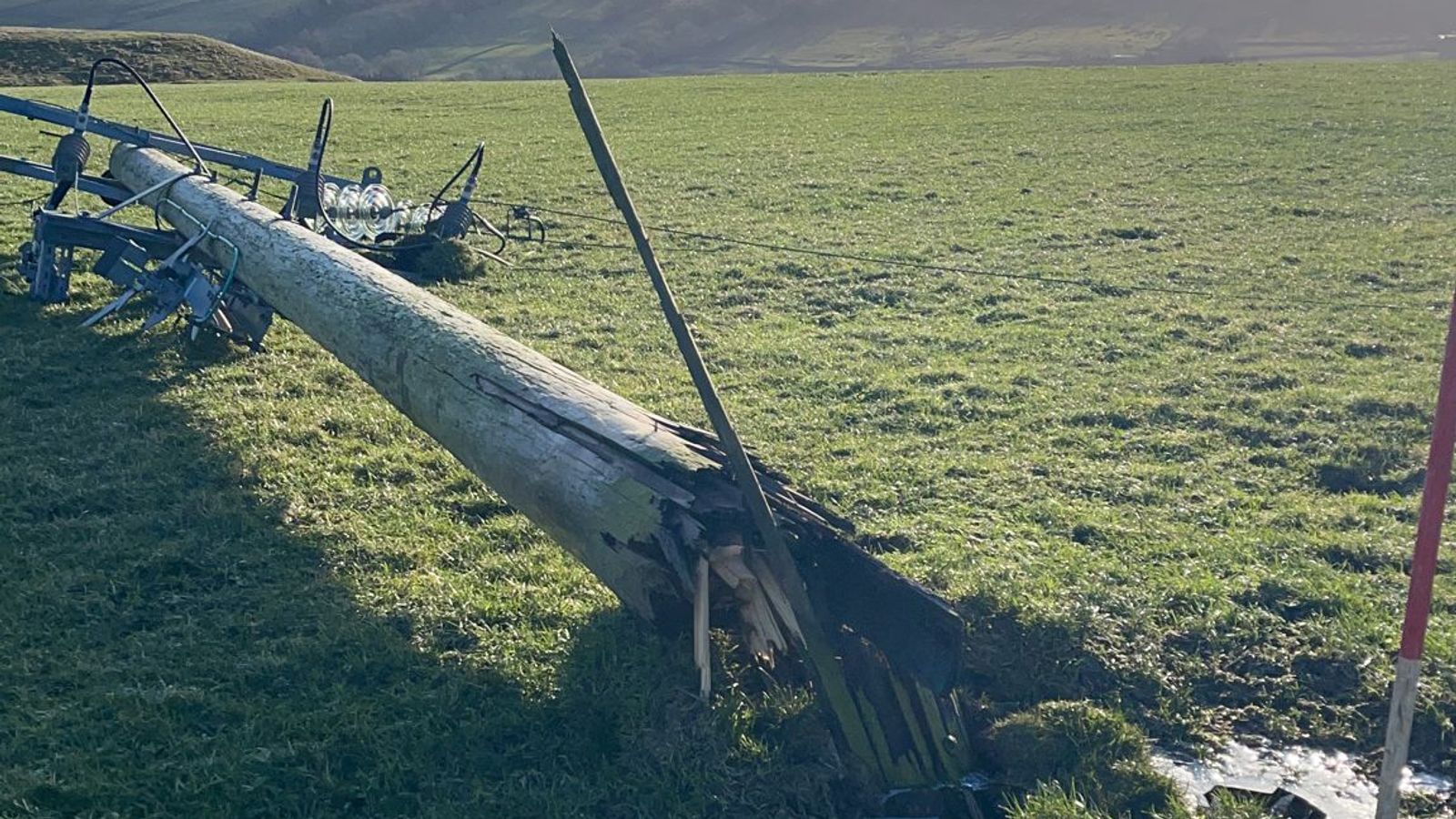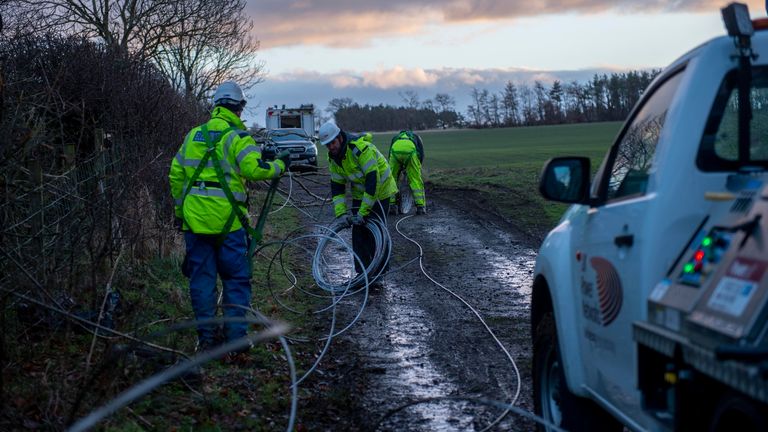Power cut compensation payments lifted after review of Storm Arwen response


The energy regulator has lifted maximum compensation payment levels available to households and businesses from storm-related power cuts.
Ofgem said they could now claim up to £2,000, from the current £700, following its review of the response to Storm Arwen by distribution network operators (DNOs) in 2021.
These firms are the six companies responsible for linking up properties to Britain’s electricity network.
In November 2021, one million homes were left without power – with thousands still waiting to be reconnected 10 days later – when heavy rain and winds, of almost 100mph at their peak, slammed into the country.
The watchdog later complained that some affected customers were left without electricity for an unacceptable amount of time, received poor communication from their network operator and ruled that Arwen-related compensation payments took too long.
Almost £30m was eventually paid out to customers by the DNOs, which can face multimillion-pound fines for failures to adhere to reconnection deadlines.
These are to be determined from now on by the impact of storms on the grid.
Just two categories of storm strengths, Category 1 and Category 2 – the latter being the most severe – are to be used.
“If the severe weather event is deemed to be a Category 1 storm, customers will be entitled to £80 compensation if their supply is not restored after 24 hours,” Ofgem explained.
Advertisement
“For Storm Category 2, consumers will be entitled to £80 compensation if their supply is not restored after 48 hours.
“For both storm categories customers are entitled to a further £40 for every 6 hours they are without power after the initial restoration period mentioned above (24 hours for category 1 and 48 for category 2).”
The updated regulations will allow for all compensation payments to be made by bank transfer to simplify and speed up the process.
Ofgem added that the level of compensation payments would rise each year in line with a mechanism linked to inflation.
Read more business news:
Top Bank of England economist’s interest rates warning
Marmite maker accused of not cooperating on food prices
Heathrow warns customers about extra ULEZ charges
The regulator’s director general of infrastructure, Akshay Kaul, said: “It’s unacceptable that thousands of households were left without power in freezing conditions for a prolonged period during Storm Arwen, often with poor information about when their power would be restored.
“Many also found it hard to get the compensation they were entitled to afterwards, and that’s why we’ve put tough new rules in place to make sure network companies prepare better for severe weather; customers get accurate and honest information about power cuts in their area; and those who are off power in bad weather are rapidly and fairly compensated.
“Lessons have been learnt by the industry following our review into Storm Arwen, but the frequency of extreme weather events is only set to increase, so we need to make sure network services are resilient.
“Network operators and suppliers should get ready for the coming winter. We will not hesitate to hold them to account if they fall short of the standards customers have a right to expect.”